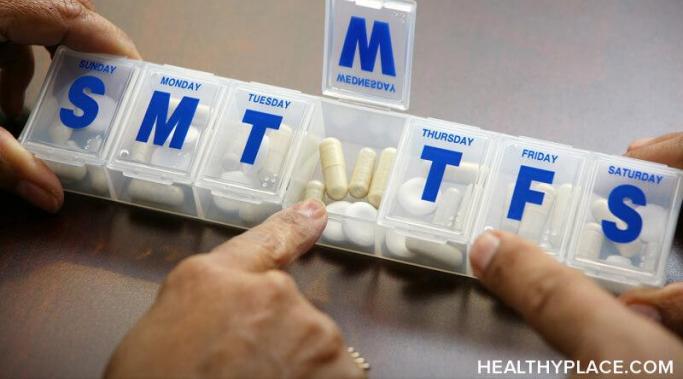Blogs
Using ignorance as an excuse doesn't mean what someone said or did wasn't stigmatizing toward mental health or, more specifically, mental illness. Why? Because stigma isn't about intent. Stigma is the negative ideas and misconceptions of mental illness, whether intended or not. Ignorance only determines whether you're mistakenly stigmatizing mental health or doing it on purpose. But stigma is stigma, whether you know any better or not.
Generational silence surrounding complex posttraumatic stress disorder (complex PTSD, often shortened to C-PTSD) and the abuse that can cause it makes growing up in a physically, mentally or emotionally abusive family especially hard. When family members tell you that you need to just shut up and accept it's just how the family is, you can be left feeling hopeless and broken. This attitude is passed on from generation to generation with the expectation that the next generation will also keep quiet. It is the curse of generational silence and it can feed complex PTSD, but it's a curse that you can break.
Verbal abuse and anger seem to go together. In fact, one common stereotype of abuse is that the abuser must have been angry when the behavior occurred. This makes sense because aggressive behavior is the easiest to see and understand. When it comes to verbal abuse, subtle psychological mind games are more difficult to pinpoint and explain than direct insults and putdowns.
If you pause to listen to your anxiety, you might find that it has something helpful to say. Something called cognitive dissonance, a conflict within us, is a part of much of our anxiety no matter what type of anxiety we're dealing with. Together, these two forces can shout painfully at us, but behind the shouts is often a whisper of wisdom that, if we listen, we can use to quiet both cognitive dissonance and anxiety.
Am I grateful for my borderline personality disorder (BPD)? Yes. Years after my initial diagnosis, I can honestly say I am grateful to have received the diagnosis of borderline personality disorder and for the life I've lived with both the difficult moments and the beautiful ones. It might seem counterintuitive, but there have been unexpected gifts of receiving a diagnosis of BPD. Today, as I close out one year since I started writing this blog, I wanted to share a few of the unexpected gifts of living with BPD and why I'm grateful for my borderline personality disorder.
The benefits of taking psychiatric medications include a reduction in troublesome mental health symptoms, but there's so much more to taking pills on a regular basis. When I was first prescribed psychiatric medication, I was definitely open to the idea, but I know that's not the case for everyone. Many people are skeptical, and the massive amount of stigma surrounding psychiatric medication certainly doesn't help. Here are five unexpected benefits of taking psychiatric medications I've experienced over a decade of taking pills every day.
The myth of holiday suicide is one of the most stubborn myths related to mental illness. Because it’s now officially the holiday season, I want to take this opportunity to do my part to bust the most stubborn myth. Most of you have probably heard there is a significant increase in suicides during the holiday season; however, as the title of this post suggests, this is a myth. Suicide rates are actually lower than average during the holidays, with their peaks occurring in the spring and fall. While most people probably don’t think much of the myth, dismissing it as another old wives tale tenaciously hanging on to relevance, I’m much more disturbed by it, and feel the holiday suicide myth needs to be addressed with some degree of urgency.
We need to know how to reduce anxiety quickly. During a busy day at work or school, a lot of situations that are anxiety-inducing can arise -- whether conflicts with coworkers, challenging assignments, or upcoming deadlines. Unfortunately, when you're moving quickly from one task to the next, it can be difficult to address your anxiety without taking a lot of time away from your work. Because of this, I wanted to share three ways you can reduce your anxiety in under three minutes. These anxiety strategies can be used in combination with each other or individually -- the key is to choose one and use it whenever you really need to reduce anxiety quickly.
Recently, I began to wonder if my medication is an emotional crutch. An emotional crutch is something that one relies on during a period of difficulty. But is using medication as an emotional crutch really that bad?
Starting a new job with attention-deficit/hyperactivity disorder (ADHD) can be particularly difficult. If you have ADHD, remind yourself that this is a big change, which is both exciting and challenging for someone with ADHD. Below is a video with a few questions you might want to ask your employer before you get started at your new job with ADHD.









